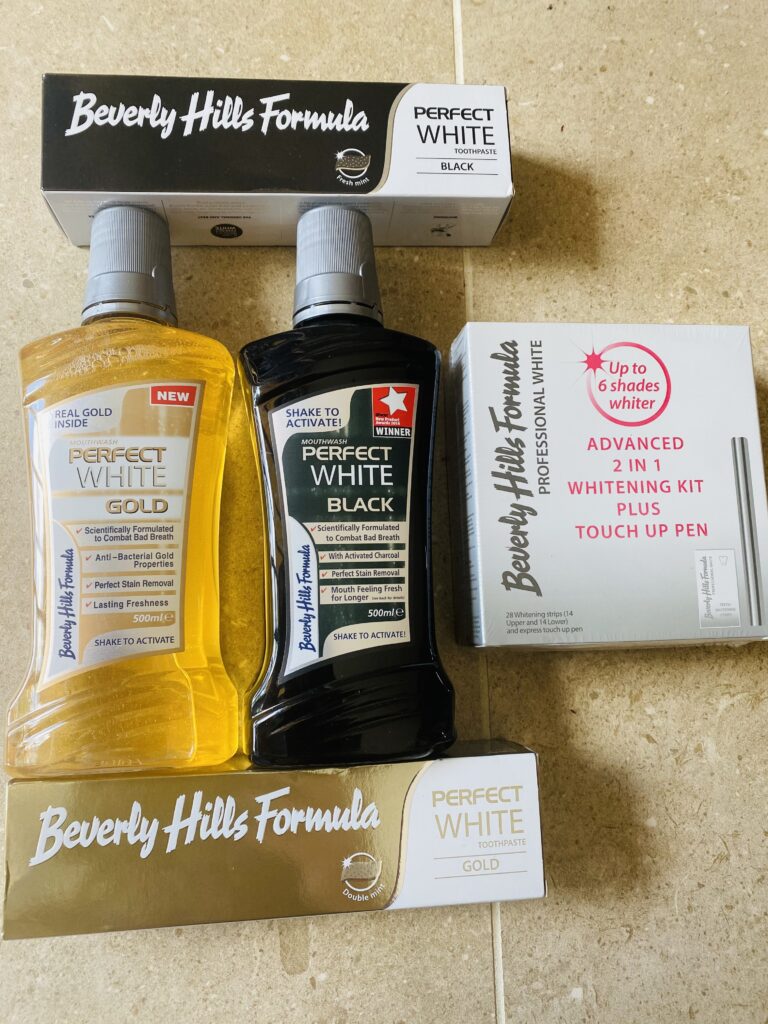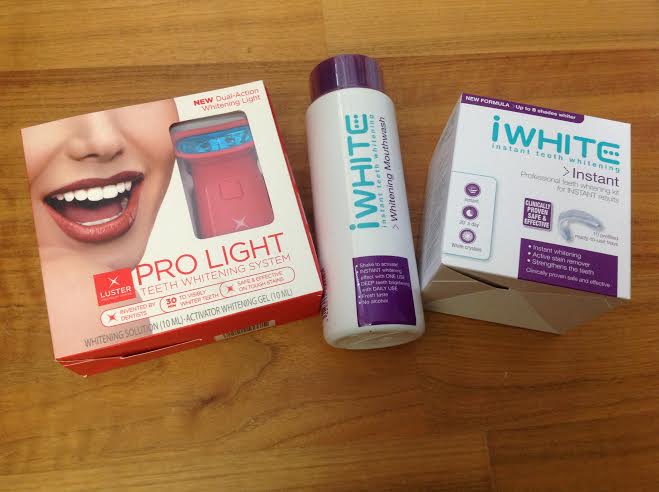Aside from regular trips to the dentist, how can we best take care of our teeth at-home?
“It is so important to have your own bespoke oral care plan. We are all different, at different stages of life and have specific oral health needs, also linked to our general health and if underlying conditions are present. I love creating a specific routine for my patients at Paste Dental in Belfast, it’s never a one size fits all, and it needs to be reviewed as needs change.
Flossing is key! Floss daily, honestly it’s a game changer. Interdental cleaning with floss or inter-dental brushes will reduce plaque loading, freshen your breath and prevent baseline inflammation which can progress to gum disease. Right now I am using CocoFloss products – from the US, a great tool.
Friends of mine have just released an unbelievable product from their company Parla (as featured on dragons den) which is 100% biodegradable floss, letting us as professionals continue to promote great oral care while being mindful of the impact single use plastic has on our planet! Brushing twice daily, a balance diet and education about your own needs will serve your gums and teeth well.
Not all toothpaste is created equal, so make sure you’re using one that’s right for you. Whether you need fluoride, sensitivity relief, or whitening, there’s a toothpaste out there for everyone. Even better chat to your dentist and plan a bespoke regime, tailored specifically to you.
Two minutes may not seem like a long time, but it’s the recommended amount of time to brush your teeth.
Be careful with drinks you assume are super healthy! Acid attacks are very common from this sort of potion, leading to tooth translucency, enamel wear and dentine hypersensitivity.
Eating a balanced diet can help maintain healthy teeth and gums. Foods rich in calcium, such as dairy products, leafy greens, and almonds, can help maintain bone density. Additionally, eating crunchy fruits and vegetables, such as apples and carrots, can help stimulate saliva production and clean teeth naturally.
Drinking plenty of water can help alleviate dry mouth and prevent tooth decay. Carry a water bottle with you throughout the day and sip water regularly.
What are the dos and don’ts of brushing?
Brush for 2 minutes when you wake up and 2 minutes before you go to sleep – that’s a great start. I recommend an electric brush (it can easily regulate the force – preventing over-brushing) and with AI now it can show you where you missed in real time.
Spit don’t rinse your paste! Leave that gritty texture and coating on your teeth, it will help remineralise, block dentinal tubules to reduce sensitivity and maintain a fresh breath for longer.
For a manual brushing fan, check the bristles and make sure they are not frayed or splayed – usually every 6 weeks we should swap to a new brush.
Store you brush away from the toilet, not in a closed container and firmness of bristles is really a personal preference. Also hopefully it goes without saying but don’t share your toothbrush! I love the Te-pe manual brushes because you can steep the toothbrush head in boiling water without damaging the bristles, no fear of bacterial contamination here.
What are the worst habits we should break for better dental hygiene?
Not flossing enough! Honestly. It’s the one thing I tell my patients. I would prefer they floss over anything else. Once you personally get into a great interdental cleaning habit, bleeding gums are gone, fresh breath is back and a clean mouth reigns. It will also save you thousands in dental bills in the future, trust me!
How often should we floss? What are the signs of gum disease and how can we prevent it?
Daily! Everyday! – twice if you can! Gum disease is multi-factorial. With genetic components, the presence of specific oral pathogenic bacteria, smoking and oral hygiene playing a role we as professional try to cut through the noise and find out objectively what is the root cause. A great tool we now use is salivary micro biome testing. This objective data will let patients see exactly what bacteria is present and if it is having a truely damaging affect on their oral health.
Signs such as chronic bleeding gums, bad breath, mobility of teeth and more seriously tooth loss are all linked to gum disease!
Interestingly we also find patients who have active gum disease present have significantly lower health outcomes in terms of heart disease, diabetes and COVID-19. Our body is a system and as a cosmetic dentist but primarily a dental health professional it’s important that we join the dots for patients and help foster holistic treatment planning. I believe we can help prevent gum disease through patient education on their own health, the causes and risk factors of gum disease, a bespoke oral care plan and patient understanding to self manage at home!
What are the benefits of interdental brushes? Should we use them alongside flossing? Can children use them?
As we get older, spaces can develop between our teeth as the jaw bone grows overtime. Tooth loss also creates odd spaces as teeth drift or change position. We don’t need to worry but certainly need to be aware of how to look after our mouth as this happens. Floss is great for small spaces but as the bone reduces in height and remodels larges spaces can appear which need a much larger tool for effective cleaning. Floss and interdental brushes are so necessary. You want to use the biggest brush that fits into the space comfortably, with bristles sweeping under the gum line and around each tooth margin. Revise and resize. Every 3 months it is vital you, or ideally in partnership with your dental/hygienist or dental therapist, revise and resize your brushes (spaces will increase as inflammation reduces), we want your cleaning to remain efficient and effective. Children don’t need this level of cleaning as their teeth are much more compactly placed together.
What are the benefits of a water flosser? Should we be using one daily?
I’m not a major fan of waterflossers as a tool on their own but some patients swear by them for removing food particles and debris. Certainly not a replacement for effective interdental cleaning but maybe a nice add on to help maintain a fresh breath!
How can women best look after their teeth during significant life milestones such as pregnancy and the menopause? Can HRT affect teeth & gums?
Menopause and pregnancy bring a variety of challenges to oral health. Blood flow levels in the oral mucosa and gingiva change, gingivitis and inflammation can increase and deficiencies in vitamins and minerals can cause ulcerative flare ups lasting several weeks. My advice is to try your best to maintain your oral health routine, don’t beat yourself up about missing some element, life is complicated and don’t let perfect be the enemy of simplicity and consistency.
If morning sickness is causing havoc, try to brush at a different time of the day, adapt your routine to suit you but try to aim for some sort of consistency that is achievable! Life is amazing, you are smashing it, remember that!
What are the most common dental mistakes / misconceptions you’ve heard about or seen with your patients?
1. People fear judgment from us firstly. At Paste Dental Belfast we cast that aside from the minute people walk into our clinic. As dentists we are here to give you information, to guide but to help you make informed choices for your own health! Don’t fear judgment.
2. Vaping is totally safe, actually not quite true! Also I am seeing an emerging trend towards Swedish tobacco pouches, again not safe (major oral cancer link).
3. Dentistry is expensive! Yes – but a good structured oral care plan will help avoid the need for expensive dentistry in the future.
4. Sugar is evil. Again, no! A balanced diet is key, it’s all about the frequency of sugar exposures and length of time taken for oral bacterial acid levels to neutralise.”






